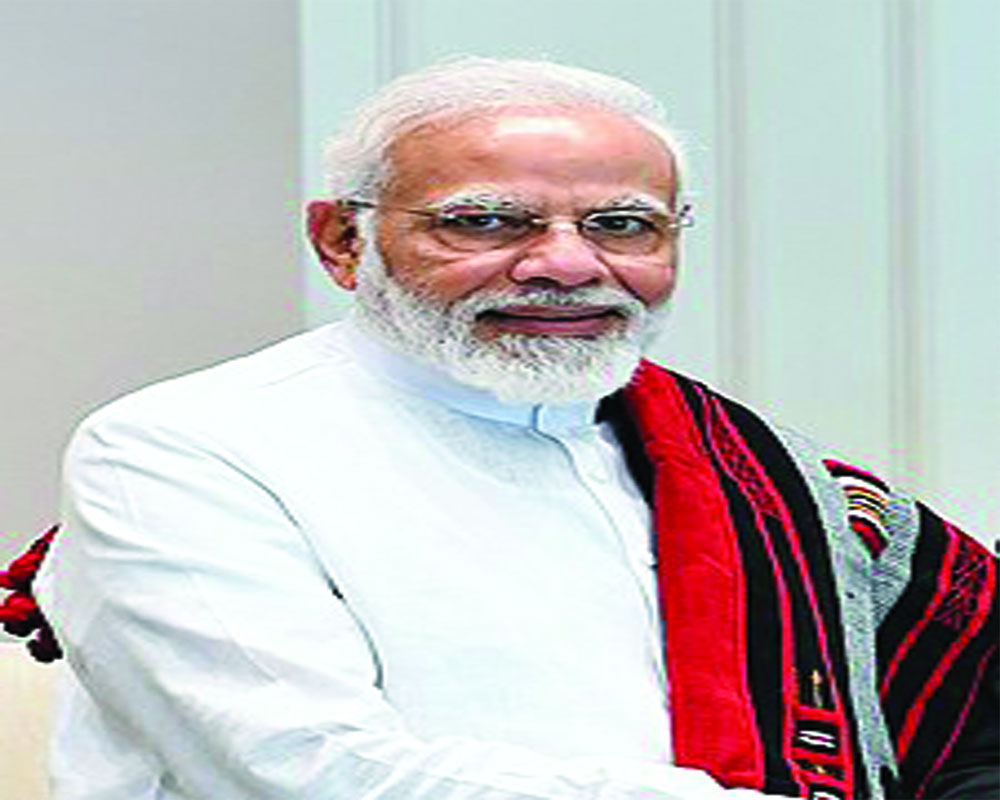The social commitment to rebuilding systems in stressed times may deliver bigger gains than divisive politics
The Government may have hit the pause button because of the pandemic, sweeping every other crisis under the carpet but it is likely to find its hands full with unresolved issues in 2021. And though he may have beaten many world leaders in actually winning the war of perception — Modi’s political stock continues to be high despite what we may consider as flaws in COVID management, his economic packages or the migrant workers’ pain — the Prime Minister has got to do a lot more than just rely on his party’s electoral victories. First and foremost, he will be tested on the successful rollout of the vaccination programme, a logistical challenge of unimaginable proportions and attendant investments. With the shroud of COVID-19 likely to cast dark shadows over the first half of the year and our public health infrastructure still in a shambles in the countryside, the budgetary allocation for healthcare is likely to stretch the seams. Besides, a tanking economy has its own side-effects and though forecasts project a recovery by the year-end for India, pivoted around a strong base effect, the stressed banking sector and recessionary trends would but naturally contract the GDP growth in the first half when funding for vaccination would be the pressing concern. Besides, joblessness is still a reality and a resultant weak demand arising out of low consumer spends means recovery will be a stutter. Resource mobilisation, too, will be an unprecedented challenge. Politically, the turbulence that has been simmering under the blanket shutdowns, which did encourage a Centrist and absolutist approach to problem-solving, is expected to surface with full force. In fact, the farmers, protesting against the new farm Acts in a depoliticised and pointed manner, have shown that dissent can indeed win the day and bring even the toughest Government to its knees. Will this largely people-driven movement also make the Opposition further irrelevant? Would a leaderless movement emerge as the alternative to the leader-driven politics of our times? Would this revive the dissent against the ruling BJP’s divisive politics, which has reared its ugly head again amid the legislation on love jihad — more an exercise in “otherisation” of minorities than on conversion? If anything, it has reignited the latent anger that was visible in the protests against a religion-based citizenship law and the National Register for Citizens (NRC) and it remains to be seen whether the muffled voices take to the streets again with the Union Ministers spelling out their agenda in no uncertain terms.
The Modi Government must realise that it has a brute majority, it has achieved its core agenda of the Ram temple and mainstreaming Jammu and Kashmir and it has the heft to get things done in Parliament. It doesn’t need to fan the flames but should go back to its core development platforms to redeem itself as a stabiliser of hard times, not a destabiliser. The BJP’s drumroll on its divisive policies is understandable, considering that the polarisation of votes continues to reap it rich electoral dividends. So the party is deploying its proven formula with the Assembly polls scheduled in five States around the middle of the year, by which time the vaccine politics and related controversies are expected to take the centre stage. No matter how much of a prestige fight the States might be for the BJP, it would be wise to respect the imperatives of a post-pandemic world and appear as a transformative party, not a destructive one, under these circumstances. Of course, the only accelerator for Modi’s vaunted appeal is a slipshod Opposition. It cannot read into trends at the right time and, instead of making an issue, waits for the civil protesters to react. Little wonder then that the Opposition parties have been marginalised from the discourse on the farmers or minorities. If the local body polls in States are any indication, there is an undercurrent against the BJP from the high of 2019. It also proves that the grassroots matrix of traditional parties is still intact. But somehow, the Opposition is not being able to coalesce as a national alternative. And the main party that should have been the initiator of such an effort, the Congress, is still sailing rudderless. Both the ruling party and the Opposition must realise that the pandemic has changed socio-political and economic anxieties. Respecting that will change India.


























